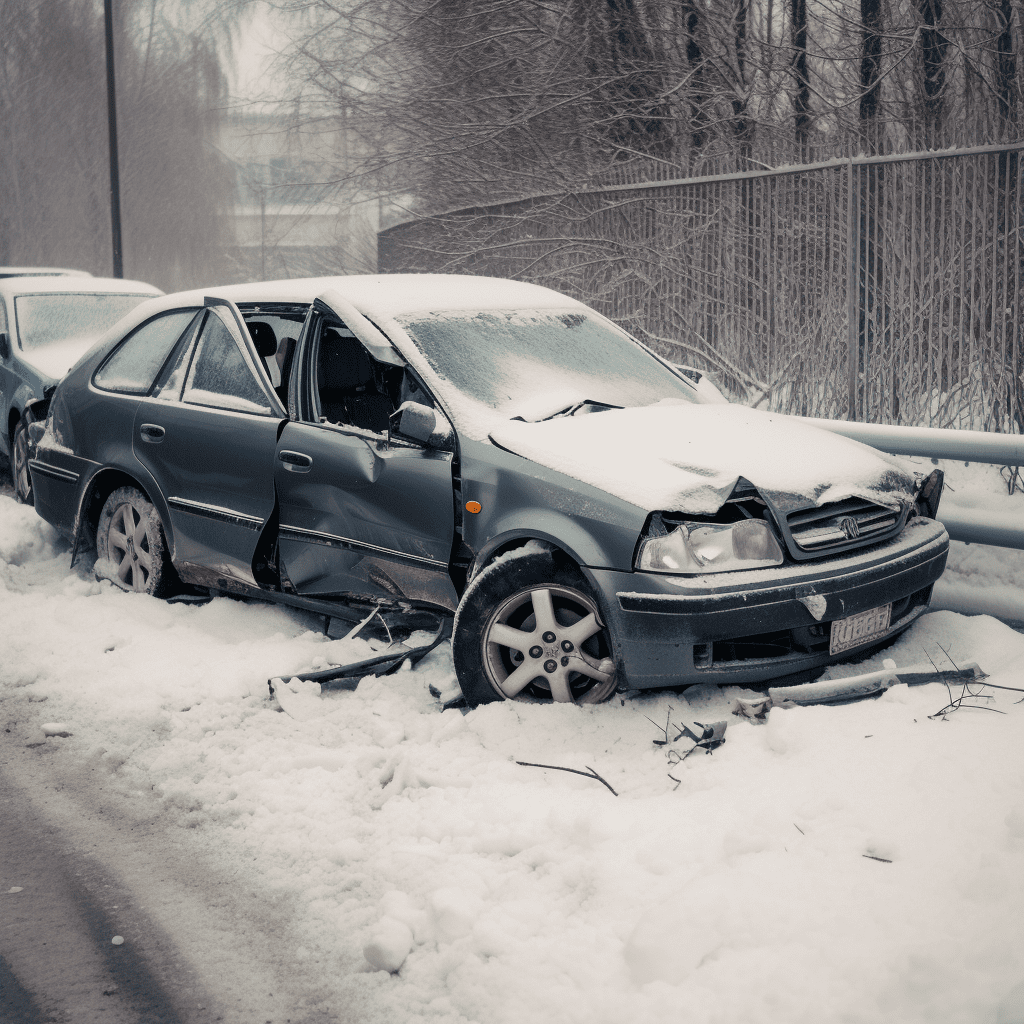Listen to an excerpt of this page
In a matter of seconds, a car accident can turn your life upside down, leaving you with traumatic and overwhelming physical injuries, emotional distress, and a multitude of questions about what to expect and what to do next.
The shock of the impact, the confusion in the immediate aftermath, and the looming uncertainty about the future can all contribute to a sense of helplessness and anxiety. If you or a loved one suffered injuries in a car accident, there are some things you should look out for.
To protect your rights and improve your chances of getting the compensation you deserve, we’ve compiled this list of things you can expect after a car accident.
if you or a loved one has been injured in an auto accident, reach out to a knowledgeable car accident lawyer today.
Key Takeaways
- Physical symptoms may not appear immediately after a car accident. Listen to your body and seek medical attention promptly.
- Be cautious when dealing with insurance adjusters to protect your rights and avoid settling for less than you deserve.
- Don’t accept the first settlement offer from the insurance company without consulting a personal injury attorney for fair compensation.
1. You May Not Notice All Your Physical Symptoms Right Away
After a car accident, you may experience a wide range of physical symptoms, some of which may not immediately manifest.
Here are some of the most common physical sensations and injuries you may feel following a crash:
- Shock and Adrenaline: Immediately after the accident, you may feel a surge of adrenaline and enter a state of shock. This can temporarily mask pain and other symptoms, making it difficult to assess the extent of your injuries.
- Pain and Soreness: As the shock wears off, you may begin to feel pain and soreness in various parts of your body. This can include neck pain, back pain, headaches, and general discomfort. The pain may be localized or diffuse and can range from mild to severe.
- Whiplash: Whiplash is a common injury in car accidents, particularly in rear-end collisions. It occurs when the head is suddenly jerked forward and then backward, causing strain on the neck muscles and ligaments. Symptoms of whiplash may include neck pain and stiffness, headaches, dizziness, and shoulder pain.
- Bruising and Contusions: The impact of the accident can cause bruising and contusions (deep bruises) on various parts of the body. These may develop over the course of several days.
- Cuts and Lacerations: Broken glass, metal debris, and other sharp objects can cause cuts and lacerations during an accident. The severity of these injuries depends on the circumstances of the crash.
- Fractured or Broken Bones: High-impact collisions can result in fractured or broken bones, particularly in the arms, legs, ribs, or collarbone. These injuries can cause significant pain, swelling, and limited mobility.
- Concussion and Traumatic Brain Injury: If your head strikes an object or the accident violently jolts it, you may suffer a concussion or traumatic brain injury (TBI). Symptoms can include headaches, dizziness, confusion, memory problems, and changes in mood or behavior.
- Internal Injuries: Some injuries, such as internal bleeding or organ damage, may not be immediately apparent but can be life-threatening. Symptoms of internal injuries may include abdominal pain, dizziness, fainting, and pale or clammy skin.
- Numbness and Tingling: Damage to nerves or compression of spinal discs can cause numbness, tingling, or weakness in the extremities. These sensations may indicate a more serious injury.
- Emotional and Psychological Distress: Besides physical injuries, car accidents can cause emotional and psychological distress. You may experience shock, anxiety, fear, or even symptoms of post-traumatic stress disorder (PTSD) after the crash.
Listen to your body and seek medical attention after a car accident, even if you don’t feel pain immediately. Some injuries may take hours, days, or even weeks to manifest, and prompt medical evaluation can help identify and treat these conditions before they worsen.
By documenting your injuries and following your doctor’s treatment plan, you can not only protect your health but also strengthen your case when pursuing compensation for your damages.


2. The Insurance Adjuster May Try to Swindle You
Texas is an at-fault state when it comes to car accident insurance claims. That means that the person who caused the accident is liable for the medical bills and other damages of the people who are injured. So, not only will you have to deal with the at-fault driver’s insurance company, but you’ll also have to report your accident to your own insurance company.
Refer any insurance adjuster to your car accident lawyer.
Here are several reasons why:
- Protecting your claim: Insurance adjusters are trained to gather information that can be used to minimize or deny your claim. They may ask leading questions or seek admissions that can be used against you later. By being cautious in your statements and limiting the information you provide, you can protect the integrity of your claim and avoid inadvertently undermining your case.
- Avoiding misinterpretation: Even innocent statements can be misinterpreted or taken out of context by insurance companies. For example, apologizing or expressing remorse for the accident could be seen as an admission of fault, even if you were not responsible. By sticking to the facts and avoiding speculation or opinion, you can reduce the risk of your words being misconstrued.
- Preserving your legal rights: Insurance adjusters may pressure you to make a recorded statement, sign a release, or accept a settlement offer before you have had a chance to fully understand your rights or the extent of your damages. By consulting with a personal injury attorney before engaging in substantive discussions with the insurance company, you can ensure that your legal rights are protected and that you don’t inadvertently waive any potential claims.
- Ensuring fair compensation: Insurance companies are businesses whose primary goal is to minimize payouts and protect their bottom line. They may try to settle your claim quickly and for as little money as possible, often before you can fully assess your injuries and damages. By being cautious in your communications and consulting with an attorney, you can ensure that any settlement offer is fair and adequately compensates you for your losses.
- Preventing contradictions: Insurance adjusters may ask you to provide multiple statements or accounts of the accident, hoping to identify inconsistencies or contradictions that can be used to discredit your claim. By limiting your communications and directing the insurance company to your attorney, you can prevent potential contradictions and maintain a consistent narrative.
- Protecting your privacy: Insurance companies may request access to your medical records or other personal information that goes beyond what is necessary to evaluate your claim. By being cautious about what information you share and consulting with an attorney, you can protect your privacy and ensure that only relevant information is disclosed.
- Focusing on your recovery: Dealing with insurance companies can be stressful and time-consuming, particularly when you are also trying to recover from your injuries. By being cautious in your communications and allowing your attorney to handle these interactions, you can focus on your physical and emotional recovery while your legal team advocates for your interests.
You may need to cooperate with your own insurance company, but you are not obligated to provide a statement or extensive information to the other party’s insurer. Your car accident lawyer can handle communications with both insurers.
If you have any doubts about what to say or how to respond to an insurance adjuster, consult a personal injury attorney who can guide you through the process and protect your rights.


3. The Insurance Company May Make You an Offer to Settle Your Claim
After a car accident, the insurance company of the at-fault party may offer a settlement. However, approach these offers with caution, especially if it’s the first offer they make.
Here’s what you should know:
- First offers are often low: Insurance companies frequently make initial settlement offers that are much lower than what your claim is actually worth. Their goal is to settle the case quickly and for as little money as possible. Don’t be surprised if the first offer seems inadequate to cover your medical expenses, lost wages, and other damages.
- Quick settlements may not account for future costs: In the days or weeks following an accident, you may not yet know the full extent of your injuries or the long-term impact they will have on your life. Accepting a quick settlement offer may prevent you from seeking additional compensation if you later discover that your injuries are more severe or require ongoing treatment.
- You have the right to negotiate: Remember, you are not obligated to accept the first settlement offer. You have the right to negotiate with the insurance company to seek a fairer settlement that adequately compensates you for your injuries and damages. This is where having a personal injury attorney can be invaluable, as they can handle these negotiations on your behalf and fight for your best interests.
- Consulting an attorney is crucial: Before accepting any settlement offer, it’s essential to consult with a personal injury attorney. They can review the offer, assess the merits of your case, and advise you on whether the offer is fair or if you should pursue further negotiations or legal action. An experienced attorney can also explain the long-term implications of your injuries and ensure that any settlement accounts for future medical needs and financial impacts.
- You may have a limited time to accept or reject an offer: Insurance companies may place a time limit on their settlement offers, pressuring you to make a decision quickly. However, never let this pressure rush you into accepting an unfair offer. Your attorney can communicate with the insurance company and ensure that your rights are protected throughout the process.
- Accepting an offer may waive your right to future claims: If you accept a settlement offer, you may be required to sign a release that waives your right to pursue any further claims related to the accident. This means that even if you discover additional injuries or damages later, you cannot seek further compensation. Your attorney can review any settlement documents and ensure you understand the implications before signing.
While it’s common for insurance companies to make settlement offers after a car accident, it’s generally advisable not to accept the first offer without consulting a personal injury attorney. Your attorney can help you evaluate the offer, negotiate for a fairer settlement, and protect your rights throughout the process.
The legal muscle you need to win
Steps to Take After a Car Accident to Protect Your Rights
Taking certain steps after an accident can help protect your rights and improve your chances of recovering the compensation you deserve, such as:
Step 1: Seek Medical Attention
Always make your health and well-being the top priority after a car accident. Even if you feel fine, get checked out by a medical professional. Some injuries, such as whiplash or internal bleeding, may not immediately manifest. Seeking medical attention creates an official record linking your injuries to the car accident. This documentation is essential when filing an insurance claim or pursuing legal action.
If you do plan to file a personal injury claim or lawsuit, seeking medical attention demonstrates that you took your injuries seriously and made an effort to mitigate the damages. The opposing party may argue that your injuries were not severe or that you failed to take reasonable steps to minimize the harm.
Step 2: Report the Accident
If the police did not respond to the scene of the accident, you should report the incident to the appropriate law enforcement agency as soon as possible. This step is especially important if there were injuries, significant property damage, or if one of the drivers fled the scene. Obtaining a police report can help support your insurance claim and any potential legal action.
Step 3: Notify Your Insurance Company
Inform your insurance company about the accident promptly. Most policies require timely reporting of incidents. Provide them with the basic facts of the accident, including the date, time, location, and any other parties involved.
Again, insurance representatives may attempt to minimize your claim or get you to admit fault. Stick to the facts and avoid speculation.
Step 4: Document the Accident
Gather as much evidence as possible related to the accident. This may include photos of the damage to the vehicles, the accident scene, and any visible injuries you sustained. Obtain the other driver(s) ‘s contact and insurance information.
If there were witnesses, get their names and contact details as well. Keep copies of any medical records, police reports, and correspondence with insurance companies.
Step 5: Be Cautious When Dealing with Insurance Companies
As stated above, in the days following the accident, you may be contacted by the other driver’s insurance company. They might offer you a quick settlement or attempt to get you to provide a recorded statement.
Refrain from admitting fault, discussing the extent of your injuries, or accepting a settlement offer without consulting a personal injury attorney. Remember, insurance companies are often more concerned with protecting their bottom line than ensuring you receive fair compensation.
Step 6: Consider Hiring a Personal Injury Attorney
After a car accident caused by someone else’s negligence, consult a personal injury attorney.
An experienced lawyer can help you navigate the complex legal process, deal with insurance companies, and fight for the compensation you deserve. They can assess the merits of your case, gather evidence, and negotiate with insurers on your behalf. In many cases, having legal representation can result in a higher settlement or award.
Step 7: Focus on Your Recovery
Recovering from a car accident can be a lengthy process, both physically and emotionally. Follow your doctor’s instructions and attend all recommended medical appointments.
Keep track of your expenses related to the accident, including medical bills, lost wages, and any other out-of-pocket costs. Don’t hesitate to seek support from friends, family, or mental health professionals if you’re struggling with the emotional impact of the accident.

Contact a Car Accident Lawyer You Can Trust
The aftermath of a car accident can be a stressful and confusing time. By understanding what to expect and taking the necessary steps, you can protect your rights and ensure you receive the compensation you deserve.
If you want to discuss your case with a personal injury lawyer, contact DFW Injury Lawyers today at (972) 440-2320 or through our online form. We’re available to discuss your case during a free case consultation.



